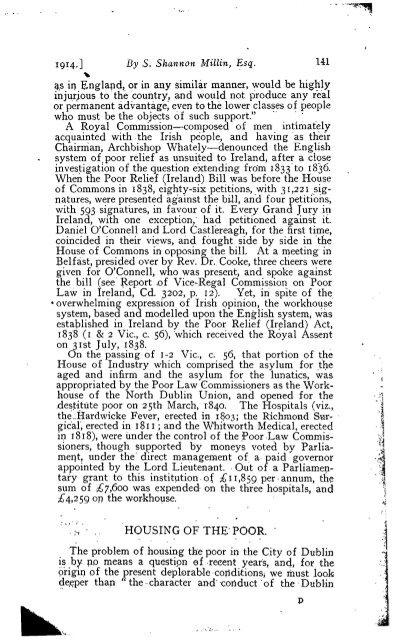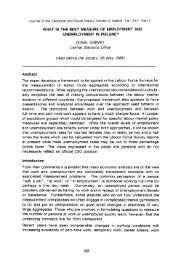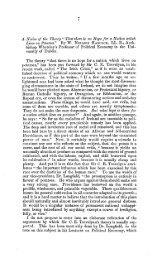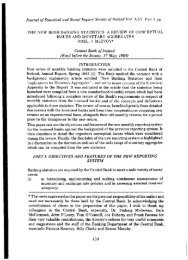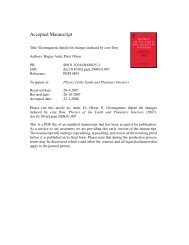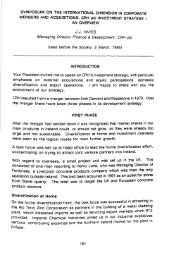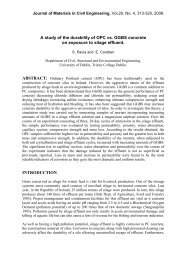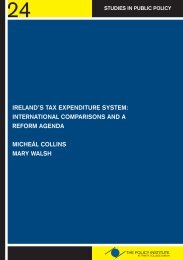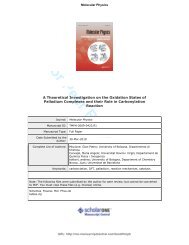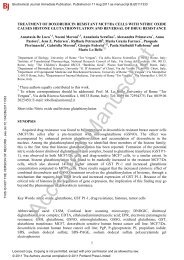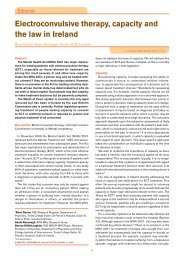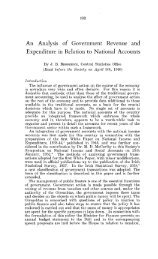Read Friday, 23rd January, 1914. - TARA - Trinity College Dublin
Read Friday, 23rd January, 1914. - TARA - Trinity College Dublin
Read Friday, 23rd January, 1914. - TARA - Trinity College Dublin
You also want an ePaper? Increase the reach of your titles
YUMPU automatically turns print PDFs into web optimized ePapers that Google loves.
1914J &}' 5. Shannon Millin, Esq. 141<br />
^s in Englapd, or in any similar manner, would be highly<br />
injurious to the country, and would not produce any real<br />
or permanent advantage, even to the lower classes of people<br />
who must be the objects of such support."<br />
A . Royal Commission—composed of men intimately<br />
acquainted with -the Irish people, and having as their<br />
Chairman, Archbishop Whately—denounced the English<br />
system of,poor relief as unsuited to Ireland, after a close<br />
investigation of the question extending from 1833^0 1836.<br />
When the Poor Relief (Ireland) Bill was before the House<br />
of Commons in 1838, eighty-six petitions, with 31,221 signatures,<br />
were presented against the bill, and four petitions,<br />
with 593 signatures, in favour of it. Every Grand Jury in<br />
Ireland, with one exception, had petitioned against it.<br />
Daniel O'Connell and Lord Castlereagh, for the first time,<br />
coincided in their views, and fought side by side in the<br />
House of Commons in opposing the bill. At a meeting in<br />
Belfast, presided over by Rev. Dr. Cooke, three cheers were<br />
given for O'Connell, who was present, and spoke against<br />
the bill (see Report .of Vice-Regal Commission on Poor<br />
Law in Ireland, Cd. 3202, p. 12). Yet, in spite of the<br />
•overwhelming expression of Irish opinion, the workhouse<br />
system, based and modelled upon the English system, was<br />
established in Ireland by the Poor Relief (Ireland) Act,<br />
1838 (1 & 2 Vic, c. 56), which received the Royal Assent<br />
on 31st July, 1838.<br />
On the passing of 1-2 Vic, c. 56, that portion of the<br />
House of Industry which comprised the asylum for the<br />
aged and infirm and the asylum for the lunatics, was<br />
appropriated by the Poor Law Commissioners as the Workhouse<br />
of the North <strong>Dublin</strong> Union, and opened for the<br />
xlesjtitute poor on 25th March, 1840. The Hospitals (viz.,<br />
theJHardwicke Fever, erected in 1803; the Richmond Surgical,<br />
erected in 1811; and the Whitworth Medical, erected<br />
in 1818), were under the control of the Poor Law Commissioners,<br />
though supported by moneys voted by Parliament,<br />
under the' direct management of a* paid governor<br />
appointed by the Lord Lieutenant. . Out of a Parliamentary<br />
grant to this institution of £11,859 per-annum, tlie<br />
sum of £7,600 was expended on the three hospitals, and<br />
£4,259 on the workhouse.<br />
' : ; ., HOUSING OF THE POOR. '<br />
The problem of housing the poor in the City of <strong>Dublin</strong><br />
is by no means a question of recent years, and, for the<br />
origin of the present deplorable conditions, we iiiust look<br />
de,eper than "the character and "conduct of the <strong>Dublin</strong>


